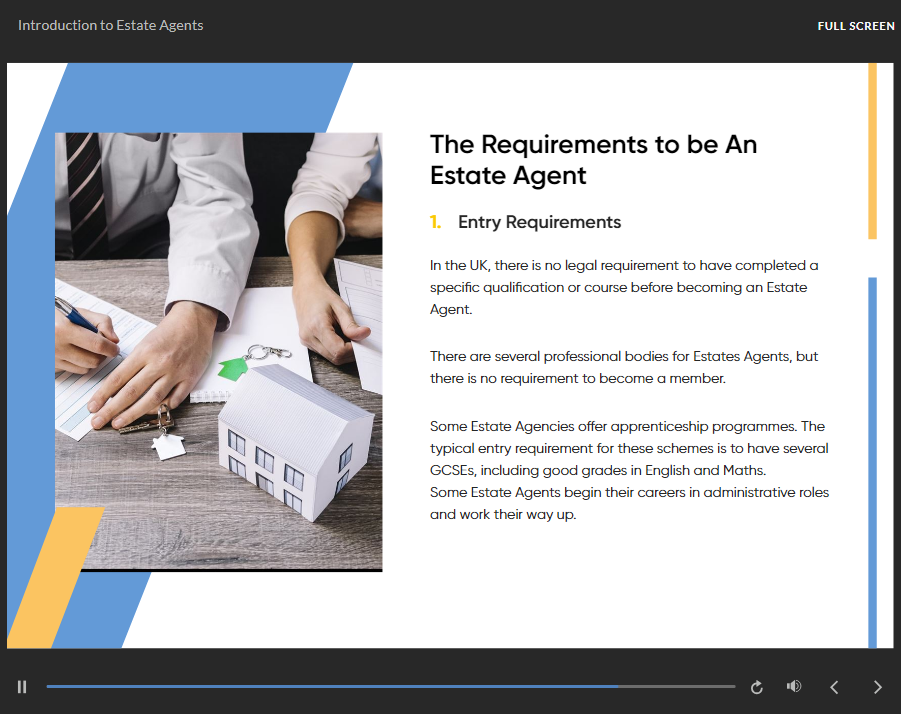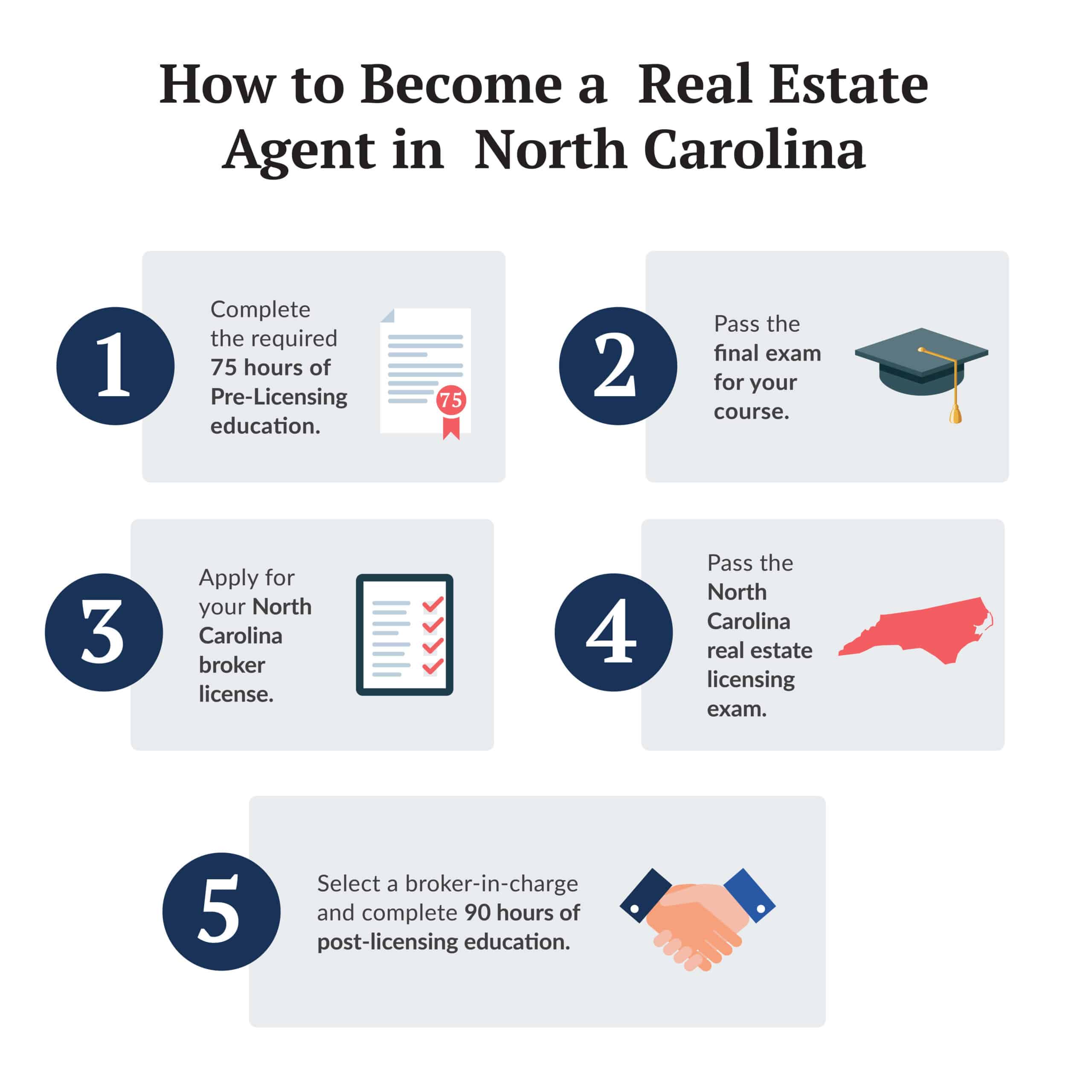
How to Become a Estate Agent Diploma: Unlock Your Career
Are you ready to step into a career that offers both excitement and financial potential? Becoming an estate agent might just be your perfect fit.
Imagine the thrill of helping someone find their dream home or securing a great deal for a client. But how do you start this rewarding career? One effective way is by earning an Estate Agent Diploma. This credential can open doors to opportunities and set you apart in the competitive property market.
In this guide, you’ll discover why this diploma is your key to success, how it equips you with essential skills, and the steps to take to achieve it. Get ready to unlock your potential and transform your professional life. Keep reading to find out how you can make it happen.
Benefits Of An Estate Agent Diploma
Deciding to pursue an Estate Agent Diploma can open doors to a rewarding career in real estate. This qualification not only enhances your credibility but also equips you with essential skills needed in the property market. Let’s dive into the specific benefits that make this diploma a valuable asset for aspiring estate agents.
Enhance Your Professional Credibility
With an Estate Agent Diploma, your professional reputation grows. Clients trust agents who can back up their skills with formal education. This diploma signals that you are serious about your career and knowledgeable about the industry.
Gain Comprehensive Knowledge
The diploma covers various aspects of real estate, from property laws to sales techniques. Imagine being able to confidently navigate legal documents or advise clients on market trends. This knowledge makes you a more effective agent, ready to tackle diverse challenges.
Increase Your Earning Potential
Higher qualifications often lead to better pay. As a diploma holder, you might find doors opening to higher-level positions or specialized roles. This could mean more lucrative commissions and a faster climb up the career ladder.
Develop Essential Negotiation Skills
Negotiation is a cornerstone of real estate success. The diploma program often includes training in this critical skill. You learn how to close deals effectively, ensuring satisfaction for both buyers and sellers.
Build A Strong Professional Network
During the course, you’ll meet peers and instructors who share your interests. This network can become invaluable as you progress in your career. Whether it’s sharing insights or collaborating on deals, having a solid network can propel your success.
Boost Your Confidence
Education boosts confidence. With the diploma, you feel more prepared to face the real estate world. This confidence translates into better client interactions and more successful transactions.
So, have you ever thought about how an Estate Agent Diploma could elevate your career? Consider these benefits as you plan your path in real estate. They might be the key to unlocking your potential in this dynamic field.

Understanding The Role Of An Estate Agent
To become an estate agent, obtaining a diploma is crucial. This qualification provides essential knowledge of property markets. It also covers legal aspects and customer relations. Courses are designed to prepare individuals for the dynamic real estate environment. Pursuing a diploma opens doors to career opportunities in the housing industry.
Understanding the Role of an Estate Agent Becoming an estate agent requires more than just a diploma. It’s about understanding the pivotal role you play in people’s lives. Whether it’s helping a family find their dream home or guiding a seller through the sale process, your influence is significant. Let’s dive into the core responsibilities and skills that define an effective estate agent.
What Does An Estate Agent Do?
Estate agents are intermediaries in property transactions. You match buyers with sellers and facilitate negotiations. The job may seem straightforward, but it requires a keen eye for detail and exceptional communication skills.
Key Responsibilities You Must Handle
Your role extends beyond showing properties. You will manage property listings, schedule viewings, and handle paperwork. One day, you might be negotiating a price; the next, you could be coordinating a surveyor’s visit.
Skills That Make You Stand Out
Communication tops the list. You need to convey complex information simply and effectively. Problem-solving skills are also critical; every transaction has its hurdles, and your job is to find solutions.
Understanding Market Trends
Grasping market trends gives you an edge. If property prices are rising, sellers want to know. Buyers, on the other hand, need reassurance they’re making a smart investment.
The Emotional Aspect Of The Job
Buying or selling a home is emotional. You might have to calm a nervous buyer or reassure a hesitant seller. Empathy and patience are your allies in these situations.
Why Trust Matters
Trust is your currency. Without it, clients won’t follow your advice. Building trust means being honest and transparent in all dealings.
Is This Career Right For You?
Ask yourself if you enjoy working with people and thrive in dynamic environments. If you do, then becoming an estate agent might be a fulfilling career path. Consider if you’re willing to learn continuously and adapt to new challenges. Understanding the role of an estate agent equips you to decide if this path aligns with your interests and skills. Would you find joy in helping someone find their first home? If your answer is yes, you’re on the right track.
Essential Skills For Success
Becoming a successful estate agent requires certain essential skills. These skills help you connect with clients and navigate the property market effectively. Developing them is crucial to thrive in the competitive real estate industry. Here are some key skills you should focus on.
Communication And Negotiation
Clear communication is vital for estate agents. Explain property details easily. Listen actively to understand client needs. Strong negotiation skills help secure favorable deals. Practice these skills regularly to improve.
Market Knowledge
Understand the property market deeply. Study local trends and pricing. Know the rules and regulations. This knowledge helps clients make informed decisions. Stay updated on market changes to provide valuable insights.
Customer Service
Excellent customer service builds trust. Be responsive and helpful always. Address client concerns promptly. Offer personalized services to make clients feel valued. Good service leads to repeat business and referrals.
Choosing The Right Diploma Program
Selecting the right diploma is essential for aspiring estate agents. A focused program teaches property management, sales skills, and legal knowledge. Practical experience and industry insights prepare students for a successful real estate career.
Choosing the right diploma program is a key step in becoming an estate agent. It sets the foundation for your future career. You want to select a course that is recognized and respected. It should equip you with the skills needed for success in the real estate industry. Explore the following factors to find the program that best suits your needs and goals.
Accreditation And Recognition
Accreditation ensures the program meets industry standards. Check if the program is accredited by respected bodies. This can impact your career opportunities. A recognized diploma boosts your credibility among potential clients and employers. Research thoroughly before committing to any course.
Course Content And Curriculum
Evaluate the course content carefully. A comprehensive curriculum covers essential topics. Real estate law, property management, and marketing strategies are crucial. Practical training and case studies enhance learning. Choose a program that offers a balanced mix of theory and practice.
Duration And Flexibility
Consider the program’s duration and your schedule. Some courses offer flexible learning options. This is helpful if you have other commitments. Online classes can provide convenience without sacrificing quality. Ensure the program fits your timeline and lifestyle needs.
Application Process
Discover the steps to earn an Estate Agent Diploma. Begin by gathering required documents, then complete the application form. Submit your application online or via mail to the designated institution.
Embarking on the journey to become an estate agent with a diploma can be exciting yet daunting. The application process is your first step toward a rewarding career in real estate. It’s crucial to understand each stage and prepare effectively. Let’s break down the process into clear, actionable steps.
Prerequisites And Requirements
Before you apply, ensure you meet the basic requirements. Most programs require a high school diploma or equivalent. Some might ask for prior experience in sales or customer service, which can be a bonus. Research specific prerequisites for your chosen diploma program. Are there age restrictions or language proficiency tests? Knowing these details can save you time and effort. Consider reaching out to current students or alumni. They can provide insights into what the program truly values in applicants.
Submitting Your Application
Gather all necessary documents before starting your application. This typically includes educational certificates, identification, and possibly reference letters. Double-check the application deadline. Late submissions often aren’t accepted, which could delay your entry into the field. Some programs offer online applications, making the process quicker. If available, use these platforms to streamline your submission.
Interview And Assessment
Once your application is accepted, the next step is often an interview. This is your chance to shine and show why you’re passionate about real estate. Prepare by practicing common interview questions. Consider your motivations and how this program aligns with your career goals. Some programs also include an assessment test. This might evaluate your math skills, communication abilities, or understanding of real estate basics. Practice these areas to boost your confidence. The application process may seem daunting, but each step brings you closer to your goal. How will you stand out and make your application memorable?
Financial Considerations
Financial considerations play a crucial role in pursuing an estate agent diploma. Understanding the costs involved helps plan effectively. It also ensures you can focus on your studies without financial stress.
Tuition Fees And Costs
Tuition fees vary across institutions. Some schools charge higher fees due to their reputation. Others offer more affordable rates. Always check what’s included in the tuition. Often, this covers course materials and access to online resources. Budget for additional expenses. These might include textbooks and technology requirements.
Scholarships And Financial Aid
Scholarships can reduce your financial burden. Many schools offer merit-based scholarships. These reward academic excellence. Some scholarships focus on need-based assistance. This helps students with financial difficulties. Research available options thoroughly. Apply early to improve your chances.
Payment Plans
Payment plans offer flexible tuition payment. They allow students to pay in installments. This can ease financial pressure. Monthly payments are common. Check if your institution provides this option. It helps manage finances better. Ensure you understand the terms and conditions.
Balancing Work And Study
Balancing work and study can be tough. Especially while pursuing an Estate Agent Diploma. Many students juggle jobs while completing their studies. This requires skills like time management and prioritization. Understanding how to balance both is crucial for success.
Time Management Tips
Time management is key when studying and working. Start by creating a weekly schedule. List your study hours and work shifts. Stick to this schedule to stay organized. Avoid procrastination by setting short-term goals. Break tasks into smaller, manageable chunks. This reduces stress and increases productivity.
Online Vs In-person Learning
Choosing between online and in-person learning is important. Online learning offers flexibility for working students. You can study anytime, anywhere. In-person classes offer direct interaction with teachers. This can enhance understanding of complex topics. Consider your personal needs and learning style. Choose the format that suits you best.
Support Systems
Having a support system helps balance work and study. Talk to family and friends about your goals. They can offer encouragement and understanding. Connect with peers in your diploma program. Share tips and experiences. This builds a community of support. Your workplace can also be supportive. Discuss your study commitments with your employer. They might offer flexible work hours.
Career Opportunities After Graduation
Graduating with an Estate Agent Diploma opens doors to diverse career paths. Opportunities abound in various sectors of the real estate industry. Each path offers unique experiences and growth potential. Whether working with clients directly or managing properties, the choices are vast. Let’s explore some exciting career opportunities available after graduation.
Real Estate Agencies
Joining a real estate agency offers hands-on experience. Work directly with clients buying or selling properties. Gain insights into market trends and client needs. It’s a chance to build a strong professional network. Agencies provide the tools and support for career growth. Many agents find personal satisfaction in helping clients find their dream homes.
Property Management
Property management offers a stable and rewarding career. Managers oversee residential or commercial properties. They handle tenant relations and property maintenance. This role requires strong organizational and interpersonal skills. It provides a chance to develop long-term client relationships. Property managers play a crucial role in maintaining property value.
Commercial Real Estate
Commercial real estate is a dynamic field. It involves dealing with office spaces, retail centers, and industrial properties. This career path requires understanding business needs and market conditions. Commercial real estate agents often work with large transactions. They help businesses find ideal locations for growth. It’s a challenging yet rewarding option for those with a business-oriented mindset.
Continuing Education And Professional Development
Continuing education and professional development are crucial for estate agents. They help maintain competitiveness and enhance skills. As the real estate industry evolves, agents must keep learning. This ensures they stay informed about new trends and regulations. Expanding knowledge and skills can lead to better career opportunities. Let’s explore ways to enhance your estate agent career through education and development.
Certifications And Licenses
Obtaining certifications can boost your credibility. They show commitment to the profession. Various courses offer specialized knowledge in real estate. These courses cover property management, negotiation, and real estate law. Licenses are essential for practicing legally. Each region has specific licensing requirements. Ensure you meet these to avoid legal issues. Regularly update your certifications and licenses.
Workshops And Seminars
Workshops provide hands-on experience. They offer practical insights into the real estate market. Seminars are great for learning from industry experts. They cover topics like market analysis and client relations. Attending these events enhances your knowledge base. They also improve your problem-solving skills. Look for workshops and seminars in your area.
Networking Events
Networking is key in real estate. It helps build valuable connections. Attend industry events to meet other professionals. These events offer opportunities to exchange ideas. Networking can lead to partnerships and collaborations. It’s a chance to learn from experienced agents. Stay active in local real estate groups. Engage with the community to expand your network.

Frequently Asked Questions
What Is An Estate Agent Diploma?
An Estate Agent Diploma is a qualification that equips individuals with essential skills for real estate careers. It covers property management, sales techniques, and legal regulations. This diploma enhances employability and provides a comprehensive understanding of the real estate industry, making it a valuable asset for aspiring estate agents.
How Long Does The Diploma Take?
The duration of an Estate Agent Diploma typically ranges from a few months to a year. This depends on the institution and study mode. Full-time courses may take less time, while part-time or online programs might extend the duration, offering flexibility to learners.
Why Pursue An Estate Agent Diploma?
Pursuing an Estate Agent Diploma provides specialized knowledge and skills needed in the real estate field. It enhances career prospects and credibility in the industry. With this qualification, individuals can better understand property laws, client management, and negotiation techniques, positioning them for success as estate agents.
What Are The Diploma Entry Requirements?
Entry requirements for an Estate Agent Diploma vary by institution. Generally, a high school diploma or equivalent is needed. Some programs might require relevant experience or previous coursework in real estate or business. Checking specific requirements of the chosen institution is essential for accurate information.
Conclusion
Becoming an estate agent with a diploma is a smart career choice. It opens doors to exciting opportunities in real estate. Follow the steps diligently to gain the necessary skills. Study hard, practice often, and stay updated with industry trends.
Networking is crucial; build connections with professionals. With dedication and persistence, success is within reach. This journey requires effort, but the rewards are worth it. Start today and watch your career grow. Remember, every step brings you closer to your goal.
Keep learning and never give up. Your future as an estate agent awaits!




